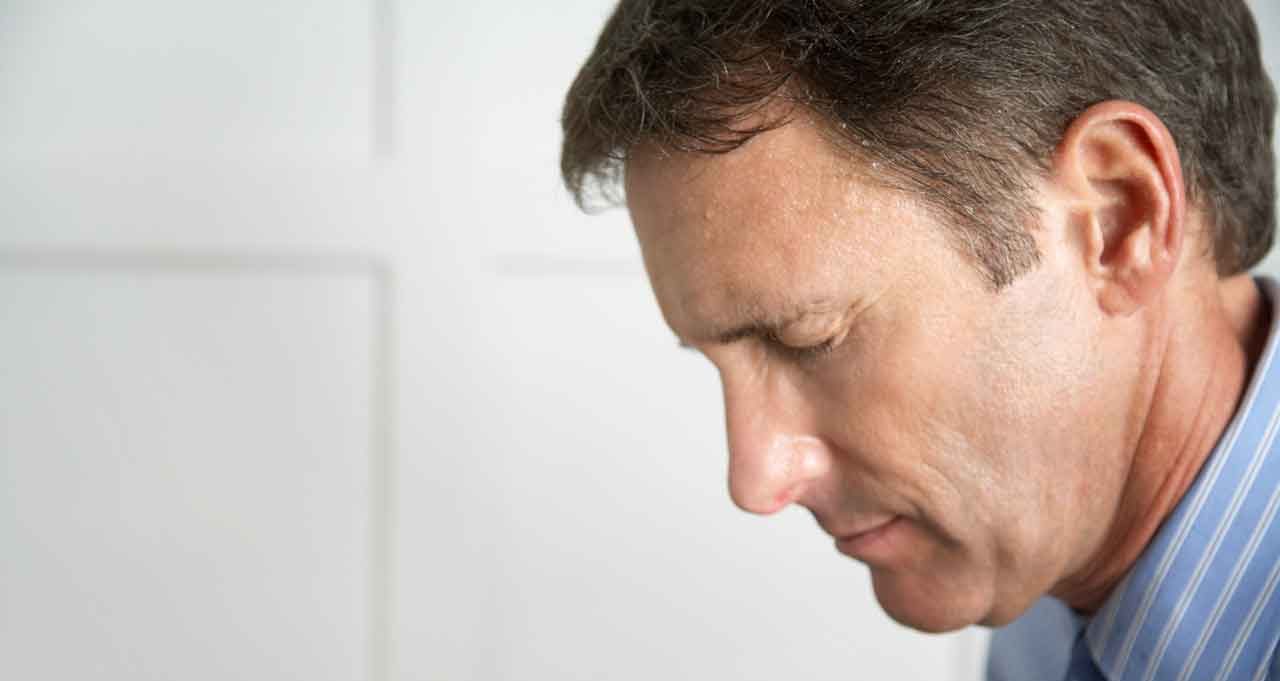Depression Versus Sadness

Feeling sad at times is normal. Depression, however, is sadness on steroids.
That’s how Lisa Hess describes her depression. It consumes her because it controls her thoughts, emotions, and behaviors. “And I can’t just snap out of it,” she said. “I hate it when people tell me to do that.”
Sometimes Hess’ depression is so strong that all she wants to do is stay in bed. “It really takes hold of me at times,” she’s said. “I’ve had suicidal thoughts.”
Fortunately, Hess is working with a therapist, and she just got an emotional support dog. “My dog, Shadow, wakes me up in the morning and makes me get out of bed,” she said. “She needs to go for a walk. If I don’t, she’ll look at me until I get up.”
Having someone to take care of has been a big help for Hess. In return, she gets a lot of love from Shadow. “Since Shadow’s been around, I get to work on time and am managing better,” she said. “Walking Shadow helps a lot. My therapist gave me an exercise plan, which helps. But honestly, I wasn’t sticking to it. I have to walk Shadow. Getting outside and walking helps.”
She also takes fluoxetine (Prozac) for her depression. “The Prozac, seeing a psychologist once a week, and walking and caring for Shadow has helped me immensely,” she said.
YOU MIGHT ALSO LIKE: Our Depression Section
Every one of us has experienced sadness. It’s often triggered by a hurtful or disappointing experience. “In other words, we tend to feel sad about something,” said Guy Winch, a psychologist and author, in his TED Talk. “This also means that when we’ve adjusted or gotten over the loss or disappointment, our sadness remits.”
Winch describes depression as an abnormal emotional state. “When we’re depressed we feel sad about everything,” he said.
He also explained that depression doesn’t have to be triggered by an incident. “People’s lives on paper might be totally fine,” he said. “They would even admit this is true, and yet, they feel horrible.”
Following are 10 ways showing the differences between sadness and depression:
1. Sadness is fleeting. Depression is constant.
2. Unlike depression, sadness can be interrupted by periods of laughter.
3. When we’re sad, we have negative thoughts. It doesn’t, however, make us feel suicidal, like depression can.
4. When we’re sad, we can still find and enjoy life’s little pleasures. It’s hard experiencing any joy when we’re depressed.
5. Sadness doesn’t last for weeks or months. Depression can be life-long. The good news is you can manage it.
6. Sadness may make us want to eat a pint of our favorite ice cream. Depression can affect our weight significantly. We can be so depressed that we overeat or lose our appetites.
7. Depression affects our sleep cycle. When we’re sad, we may miss a night’s sleep.
Depression can cause prolonged periods of sleeplessness or have the opposite affect and make us want to our days in bed.
8. Depression can cause psychotic episodes, sadness does not.
9. When we’re depressed, we feel tired most of the time. Sadness may cause low energy, but that doesn’t last long.
10. Even when we’re sad, we can focus if we need to. When we’re depressed, we have a difficult time making decisions.
According to the World Health Organization, 350 million people in the world suffer from depression. It’s a leading cause of disability. If you think you’re depressed, talk to your doctor about seeing a therapist who can help you manage your depression.
“It’s important to talk to a professional therapist,” Hess said. “I have friends I can talk to, but they don’t fully understand my depression the way a professional does. Also, a friend may want to help without knowing how. I rely on my therapist to help me.”
Updated:
April 06, 2020
Reviewed By:
Christopher Nystuen, MD, MBA